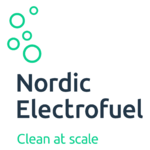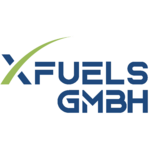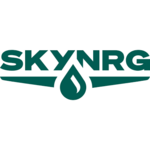Projects in the Pipeline:
Madoqua Renewables
The Madoqua Synfuels project is a world-scale e-methanol project located in Pataias in the center of Portugal. Over the last two years, Madoqua Synfuels has been developed to comply with RED EU Regulations for the production of e-Methanol as a Renewable Fuel of Non-biological Origin (RFNBO), combining green hydrogen produced from renewable electricity and recycled CO2.
Fuel type:
RFNBO compliant e-methanol
TRL:
TRL 8 – System complete and qualified
Transport Segment:
Maritime
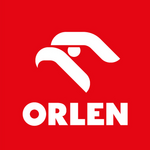
ORLEN S.A.
The "HyFly" project involves the construction of an installation for the large-scale production of synthetic fuels of non-biological origin (RFNBO) according to the Fischer-Tropsch (F-T) technology using RFNBO hydrogen and biogenic CO2. Thanks to the "HyFly" project, it will be possible to achieve a production capacity of approximately 70 kt/year of synthetic hydrocarbons, including high-quality synthetic, sustainable e-Jet RFNBO aviation fuel and valuable raw materials for petrochemicals. One of the main advantage of the "HyFly" project is its innovation using digital solutions. The first is real-time management of molecules, i.e. directing remaining products to appropriate refining and petrochemical installations in order to maximize the highest-margin products. The project will enable the implementation of CO2 emission reduction goals and the goals resulting from the ReFuelEU Aviation regulation implemented in Oct 2023 regarding the share of RFNBO and SAF in produced aviation fuels.
Fuel type:
E-kerosene RFNBO and e-lpg/e-naphtha
TRL:
TRL 8 – System complete and qualified
Transport Segment:
Aviation
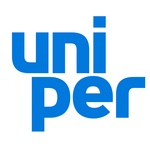
Uniper SE
SkyFuelH2 is an industrial-scale project for production of SAF. It will combine in a first-of-a-kind way electrolysis for hydrogen production, gasification of dried and torrefied biomass, Fischer-Tropsch technology for conversion of the syngas to crude and onsite hydro-treatment of the crude and workup for large-scale production of SAF and Sustainable Naphtha. The project is located in Northern Sweden, in the community of Solleftea, one of the most favorable regions with regards to renewable power supply and sustainable biomasses. The so-called power-and-bio-to-liquid process (PBtL) is achieving >90% more SAF yield than a pure BtL process and >10% more yield than two separate PtL and BtL processes.
Fuel type:
SkyfuelH2 is aiming to produce ca 77 kt/a of FT-SPK. The SAF from SkyFuelH2 will comply with ASTM D7566 Annex 1.The GHG reduction is between 88 to 95% (depending on the biomass sourcing distance).
Besides, SkyfuelH2 will produce ca 16 kt/a of Sustainable Naphtha.
TRL:
TRL 8 – System complete and qualified
Transport Segment:
Aviation
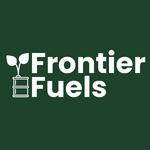
FF Frontier Fuels GmbH
With this project, we aim to conduct a small-scale pilot using our newly developed marine biofuel, Bloom E. This is our residual-grade biofuel that can be used as a drop-in solution in ocean-going vessels. This project involves the bunkering of 150 tons of a B30 biofuel and the monitoring of performance over roughly one week. Preparations include obtaining approval from engine manufacturers and classification societies, as well as working with a physical supplier for the fuel delivery. Preparatory onshore engine tests with a third-party laboratory are also possible.
We aim to collaborate with innovative shipping companies interested in exploring the potential of novel biofuels to significantly reduce their greenhouse gas emissions. Further opportunities for collaboration include working with physical suppliers for the provision of the fossil component and handling of the bunkering process, as well as engaging with experts from regulatory agencies or classification societies.
Fuel type:
Liquid Marine Biofuels
TRL:
TRL 5 – Technology validated in relevant environment (industrially relevant environment in the case of key enabling technologies)
Transport Segment:
Maritime
Vital Energy Inc
Thermal Gasification technology; converting non recycled MSW and other waste fractions compliant to RED II (dry waste / not oils) to renewable power and RFNBO fuel green methanol. Our process feedstock does not include oils.
Fuel type:
Green methanol plus the potential for other hydrocarbon fuels.
TRL:
TRL 9 – Actual system proven in operational environment (competitive manufacturing in the case of key enabling technologies; or in space)
Transport Segment:
Maritime
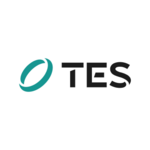
Tree Energy Solutions
TES’s aim is to produce electric natural gas, e-NG which is a product of biogenic CO2 and green hydrogen. We will produce e-NG in locations characterised by an abundance of renewable energy within and outside the European Union. The most advanced projects are in Texas, US and in Canada. We are also developing projects within the European Union and a large import hub for e-NG in Wilhelmshaven, Germany. The applied technologies are existing and proven technologies.
Two components will be the foundation of e-NG: green hydrogen and biogenic CO2. Green hydrogen will be produced via electrolysis including power from a renewable energy source; depending on the location this will be either wind or solar energy. To ensure that the electrolyser is always sufficiently supplied, an energy storage will be connected as well. The Sabatier reactor will transform green hydrogen and biogenic CO2 into e-NG which can be supplied to customers via the existing gas infrastructure.
Fuel type:
electric natural gas, e-NG
TRL:
TRL 9 – Actual system proven in operational environment (competitive manufacturing in the case of key enabling technologies; or in space)
Transport Segment:
Maritime
Nordic Electrofuel AS
To be completed soon.
Fuel type:
To be completed soon.
TRL:
TRL 8 – System complete and qualified
Transport Segment:
Maritime, Aviation
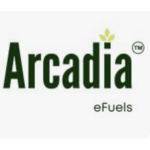
Arcadia eFuels
Arcadia eFuels will achieve our purpose by creating net zero carbon fuels that use existing infrastructure and work in existing engines.
Our solution uses proven technology in a novel way to meet the significantly outpaced market demand.
We intend to build multiple plants that will each produce 75,000 tons, or 100 million liters, of eFuels per year. Specifically, we’ll produce eDiesel and electro sustainable aviation fuel to power the transportation sector.
Arcadia eFuels is advanced for the site in Vordingborg, Denmark and are currently in development for multiple other sites worldwide.
We have finalized FEED (Basic engineering), have grid connection and secured CO2. Permitting is all handed in and we will be in public hearing mid 2024.
Fuel type:
We will produce eSAF for the aviation sector within the EU, all eSAF will be according to RFNBO-regulations
TRL:
TRL 9 – Actual system proven in operational environment (competitive manufacturing in the case of key enabling technologies; or in space)
Transport Segment:
Aviation
XFuels GmbH
The HyKero project for the industrial production of 53,000 tons per years PtL SAF is one of the selected 62 large hydrogen projects und EU IPCEI-hydrogen / CEEAG of the German government.
HyKero is considered as an important project for the production of PtL SAF in Germany and part of the PtL-Roadmap. HyKero is part of the Saxonian
hydrogen value chain LHyVE (Leipzig Hydrogen Value chain for Europe), a joint network of EDL, Leipziger-Group, VNG and Ontras, promoting the development of sustainable fuels and energy carriers in the region and beyond.
Fuel type:
PtL SAF, PtL naphtha and green hydrogen.
TRL:
TRL 9 – Actual system proven in operational environment (competitive manufacturing in the case of key enabling technologies; or in space)
Transport Segment:
Aviation
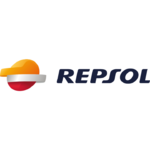
Repsol
Repsol has been developing the Ecoplanta Molecular Recycling Solution (Ecoplanta) project for several years, together with Enerkem as technological leader. It would be the first plant in Spain for non-recyclable municipal solid waste recovery into circular methanol that would be used to manufacture new materials and advanced biofuels. It is planned to be located in El Morell (Tarragona).
The plant, which is expected to start operations in 2029 after the FID made in January 2025, will process around 400,000 tonnes of non-recyclable municipal solid waste per year, mainly from ecoparks (waste recovery and treatment plants) in nearby towns, which would be equivalent to the waste generated in a year by a population of 800,000 people, thus avoiding the use of virgin raw materials.
Around 240,000 tonnes of circular methanol will be produced from this waste, which serves as a raw material for the production of circular materials and advanced biofuels.
TRL:
TRL 8 – System complete and qualified
Transport Segment:
Maritime, Aviation
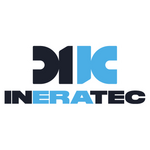
Ineratec
INERATEC is leading the transformation toward a fossil-free future with its pioneer project in Frankfurt Höchst. They are currently building the world’s largest Power-to-Liquid (PtL) plant for the production of sustainable, climate-friendly e-Fuels and e-Chemicals. Beginning in 2025, the plant will recycle up to 8,000 metric tons of CO2 annually, converting it into 2,500 tons of e-Fuels and chemicals. Targeting hard-to-abate sectors like aviation, shipping, and heavy-duty transport, INERATEC provides sustainable solutions such as Sustainable Aviation Fuel (SAF) and synthetic diesel to give those sectors the possibility to reduce their emissions and become decarbonized. This project not only marks INERATEC’s first fully self-operated facility but also represents a global blueprint for future PtL plants worldwide.
Fuel type:
We are willing to produce norm-conform drop-in ready eSAF, e-diesel, e-marine diesel, e-gasoline and e-methanol.
TRL:
TRL 7 – System prototype demonstration in operational environment
Transport Segment:
Maritime, Aviation
SkyNRG
SkyNRG and Skellefteå Kraft are entering a Joint Venture under the name Project SkyKraft, an innovative and large-scale project initiated in 2022. The project will further investigate the opportunity to produce 100,000 tonnes/y Sustainable Aviation Fuel (SAF) from renewable electricity and biogenic CO2, known as eSAF. This project will be among the first of its kind globally, positioning Northern Sweden as a leader in the energy transition. eSAF from Project SkyKraft will support the EU’s decarbonization goals and further enhance Skellefteå’s position as Sweden’s hub for next-generation green industry, creating opportunities for the aviation industry to reach net zero emissions.
Fuel type:
eSAF / eNaphtha.
TRL:
TRL 8 – System complete and qualified
Transport Segment:
Aviation

Madoqua Renewables
MadoquaPower2X (MP2X) is a world leading Renewable Fuel of Non-Biological Origin (RFNBO) hydrogen to ammonia project. It is strategically located at the Sines Industrial and Logistics Zone (Zona Industrial e Logística de Sines, ZILS) in Southwest Portugal. MP2X is jointly developed by a consortium consisting of Madoqua Renewables (Portugal), Power2X (Netherlands) and Copenhagen Infrastructure Partners (CIP), via its Energy Transition Fund I (CIP) (Denmark). The consortium is committed to developing, installing, and operating the new generation industrial plant to the highest environmental and safety standards.
The facility will have a nameplate capacity of 1,150 tonnes/day (equivalent 419,750 tonnes/annum) of RFNBO ammonia and will utilise between 50,000 to 60,000 tonnes/annum of RFNBO hydrogen produced with electrolyzer capacity of 500 MW. The produced hydrogen and ammonia are RFNBO compliant in line with the requirements of the REDII and REDIII Delegated Acts.
Fuel type:
green amonnia and green hydrogen
TRL:
TRL 8 – System complete and qualified
Transport Segment:
Maritime

Exolum Corporation S.A. (Exolum)
ECO2FLY is an innovative initiative aimed at decarbonizing the construction materials industry and transforming synthetic aviation fuel (e-SAF) production through a fully integrated value chain. Led by P2X Spain, Holcim, and Exolum, the project will significantly reduce carbon emissions in the aviation and cement sectors while complying with RED III obligations.
It will capture over 700,000 tonnes of CO2 annually from Holcim’s Villaluenga cement plant, with half converted into e-SAF—meeting 15% of Europe’s demand by 2031—while the rest is stored in geological formations across Spain. With a €4 billion investment, it will prevent 7 million tonnes of CO2 emissions in ten years, create 900 operational jobs and 2,500 annual construction jobs, and drive over 1 GW of new renewable energy capacity. ECO2FLY marks a decisive step towards sustainability, merging innovation, industry collaboration, and economic growth.
Fuel type:
The fuel developed is e-Sustainable Aviation Fuel. It is synthesized from captured CO₂ and RFNBO hydrogen. This synthetic aviation fuel has 80% lower GHG emissions than conventional jet fuel and is fully compatible with existing aircraft and infrastructure, supporting the decarbonization of the aviation sector
TRL:
TRL 8 – System complete and qualified
Transport Segment:
Aviation
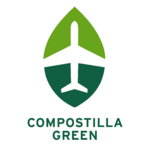
RIC ENERGY HOLDINGS, S.L.
Compostilla Green is a flagship project aimed at producing sustainable aviation fuel (eSAF), positioning Spain at the forefront of the energy transition and the decarbonization of air transport. This strategic initiative will generate over 2,000 jobs during the construction phase and 250 direct jobs in operation in Cubillos del Sil (León)—a municipality classified as a demographic challenge area and included in the Just Transition Agreement for Bierzo-Laciana in Castilla y León.
The project will deliver 60,000 tonnes of FT-SPK annually, leveraging a 250 MW green hydrogen production facility and biogenic CO₂ captured from a nearby biomass plant. Compostilla Green was ranked first in Spain’s Hydrogen Valleys program, securing significant public funding to accelerate its development.
Currently, the project is advancing through environmental permitting and has initiated Class IV engineering, marking a critical step toward execution.
Fuel type:
Green and low carbon eSAF and eNaphtas
TRL:
TRL 8 – System complete and qualified
Transport Segment:
Aviation
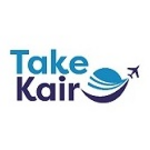
Hynamics - EDF group
The TAKE KAIR project will demonstrate the viability of a synthetic sustainable aviation fuel (SAF) production plant at industrial scale. These fuels, derived from renewable and low-carbon hydrogen produced by electrolysis of water and captured CO2, are critical to reducing the carbon intensity of aviation, alongside biofuels, which are limited by biomass availability, and the improvement of aircraft efficiency. Located in the port of Saint-Nazaire (Donges, Pays de la Loire), the plant will source CO2 captured from local emitters and will integrate a large-scale electrolyser to supply the hydrogen in order to produce annually about 50,000 tons of e-fuel (SAF & naphtha). The project will enable the scaling-up of synthesis technologies, including the reverse water gas shift (rWGS) and Fischer-Tropsch processes, that are used to synthesize e-kerosene.
Fuel type:
Approx. 40 ktons of synthetic aviation fuel and low-carbon synthetic aviation fuel per year.
Approx. 10 ktons of synthetic green naphtha per year.
TRL:
TRL 7 – System prototype demonstration in operational environment
Transport Segment:
Aviation
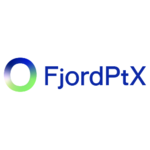
Copenhagen Infrastructure Partners P/S
The FjordPtX mission is to harness renewable power in Northern Denmark, valorize local CO2-sources, thereby supporting local industries and fostering sustainable growth while contributing to the decarbonization of the aviation sector. This is done through the production of eSAF (electro-sustainable aviation fuel). The facility will be able to produce up to 90,000 tpa RFNBO eSAF. FjordPtX works in close collaboration with local stakeholders, sourcing CO2 from a Carbon Capture facility developed by the FjordPtX team, technical water from a waste-water utility facility along with a grid connection available right next to the FjordPtX site. The project represents a capital investment of ~2-2.5 billion Euro, and the plant is expected to, once in operation, generate up to 200 permanent, full-time direct jobs.
Read more on our website: https://www.fjord-ptx.com/
Fuel type:
electro-Sustainable Aviation Fuel
TRL:
TRL 8 – System complete and qualified
Transport Segment:
Aviation
.png)






